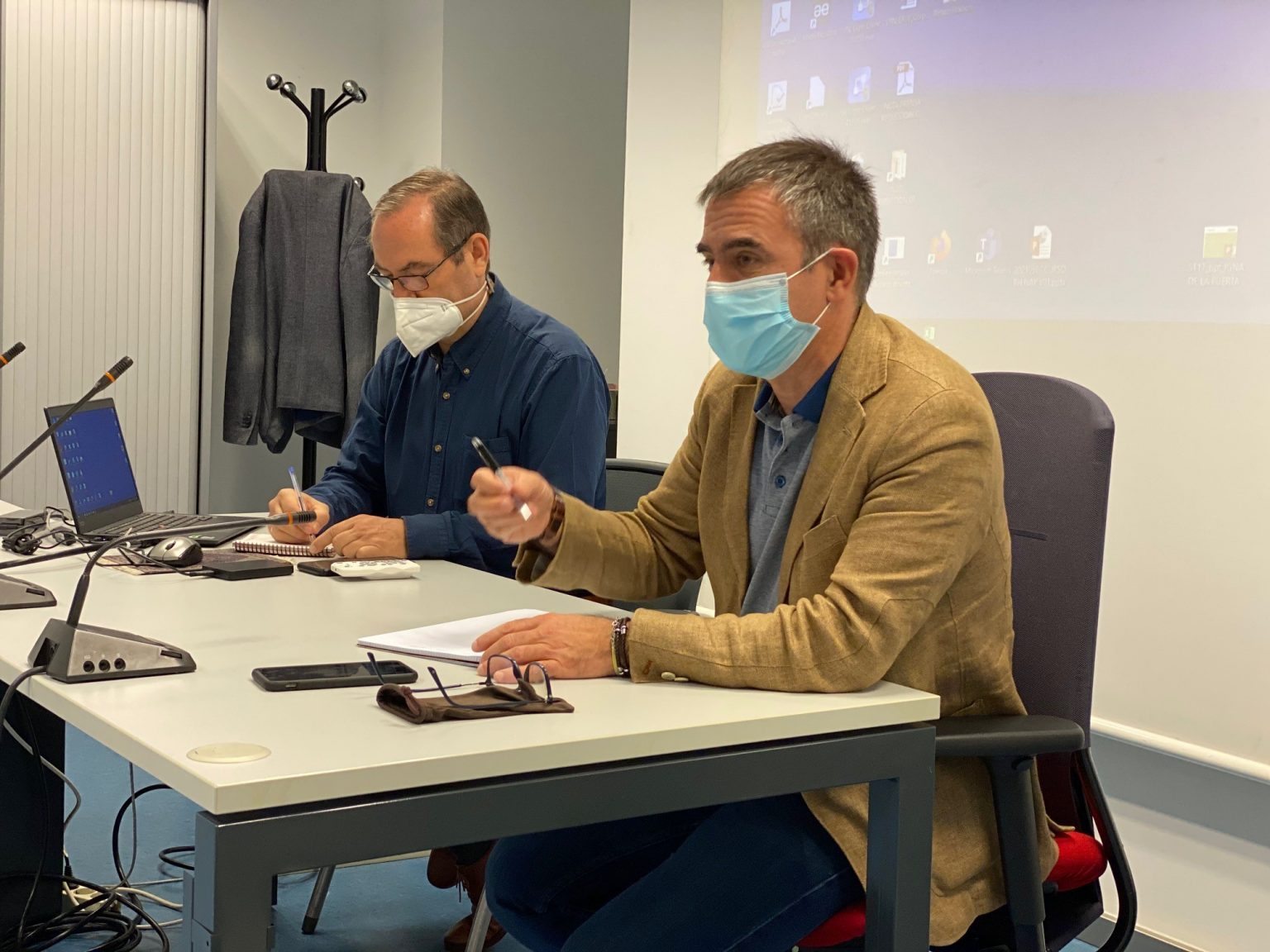Opengelak bere hiri-berroneratze programa Euskadi osoan erreplikatzeko oinarriak finkatu ditu
Opengela eredua edozein hiritan erreplikatu ahal izateko, beharrezkoa da hurbileko bulegoen funtzionamendu-oinarriak finkatzea, eta bulego bakoitzak, auzo bakoitzaren berezitasunetatik haratago, behar komun batzuen inguruan antolatzea. Hori dela eta, Europako proiektu honek ‘Liburu Zuri’ bat sortu du, abian jartzen diren bulegoak kudeatzeko oinarrizko printzipioak laburbiltzeko.
Dokumentuaren oinarria da Euskadiko etxebizitza parkeak -1960 urtea baino lehen eraikitako % 53- eredu jasangarri baterako trantsizioari aurre egin behar diola, eta ez soilik energetikoki. ‘Euskal Autonomia Erkidegoan eraikitako etxebizitza parkearen interbentzio-beharren diagnostikoa’ren arabera, biztanleriaren % 25,85 zaurgarritasun egoera larri edo oso larrian dago, eta horrek premiazkoa egiten du ingurumenaren fokua ez ezik herritarren bizi-kalitatearena ere izango duen plan bat aktibatzea.
Hori da, hain zuzen ere, Opengelaren helburua, Euskadiko etxebizitza-parkearen jasangarritasunerantz aurrera egitea, gizartean, ekonomian eta ingurumenean izan dezakeen eragina azpimarratuz. Hori dela eta, proiektu estrategikotzat jotzen da, eta guztiz bat dator ‘Euskadi Basque Country 2030’ Estrategian zehaztutako helburuekin. Estrategia horrek trantsizio energetikoa ez ezik, Eusko Jaurlaritzaren ekintzetara eramateko konpromisoa hartzen duen Garapen Jasangarriko Helburuen jomuga zehatz ugari ere bultzatzen ditu. Gainera, Opengelaren garapena guztiz bat dator ‘Bultzatu 2050 – Euskadiko Hiri Agendaren’ jarraibideekin.
Opengela eredua barruti-bulegoen inplementazioan oinarritzen da. Bulego horiek auzoak leheneratzeko prozesuak bateratzen dituzte, auzotarrei arreta eskainiz eta inplikatutako gainerako kolektiboak koordinatuz. Opengelak Otxarkoaga (Bilbo) eta Txonta (Eibar) auzoetako bi proiektu pilotu ditu abiapuntu, eta autonomia-erkidego osoan erreplikagarria izatea du helburu. Horretarako, beste lurralde batzuetara eskalagarritasuna erraztuko duten jarraibideak ezartzen ditu.
Proiektuak errendimendu ona izateak bulegoak auzoan egiten duen jardueraren emaitzak, eraikinen birgaitze integrala, etxebizitzen erosotasuna hobetzea eta bertan bizi diren biztanleen bizi-kalitatea hobetzea dakar, bai eta inbertsioaren zuzeneko eragina tokiko jarduera ekonomikoaren garapenean. Inpaktua neurtzeko, monitorizazio-tresna bat behar da, bulegoa planteatzen den auzoan proiektuak duen errendimendu-adierazleak definituko dituena, bai eta inpaktu sozioekonomikoaren, ingurumenaren eta hiriaren inpaktuaren adierazleak ere.
Halaber, bulegoaren kudeaketaren emaitzak neurtuko dira, bai eta proiektuan parte hartzen duten profesional eta enpresenak ere, eta herritarrek beren auzoaren hobekuntzan duten parte-hartzea ere neurtuko da. Auzoko bulegoek edo One-Stop-Shopsek (OSS) lagundu eta dinamizatuko dituzte errehabilitazio-prozesuak, eta horietan egingo da jarduketa horiek neurtzeko eta gainbegiratzeko lana. Horretarako, ildo komun batzuk ezarri dira, lan hori errazteko.
Bost esku-hartze arlo eta hiru koordinazio-maila
Emaitza positiboak lortzen diren jakitea ahalbidetuko duten adierazleek bost dimentsio jorratuko dituzte: eraikuntza (efizientzia energetiko edo konfort handiagoari dagokionez), hiri-ingurunea eta ingurumen-hobekuntza (zarata txikiagoa, segurtasun handiagoa, irisgarritasuna…), dimentsio soziodemografikoa (ahulezia sozial txikiagoa edo zerbitzu publiko hobeak), sozioekonomikoa (enplegagarritasun handiagoa, etxeko energia-kostu txikiagoak…) eta auzoko bulegoaren kudeaketa (laguntzen kudeaketa, finantzaketa, birgaitze-prozesuaren ezagutza…).
Emaitzak bermatzeko, beharrezkoa da kudeaketa-egitura bateratua, hierarkizatua eta eskualde-mailan planifikatua izatea, eta, aldi berean, egitura horren garapena malgua izatea. Egitura honen izaera bateratua hiru osagaitan oinarrituko da: kontzeptuala, finantzarioa eta teknikoa. Horretarako, maila globaleko kudeaketa-tresna bat eratu behar da, finantza-ekarpenen banaketa, jarduketen programazioa, esku hartzeko irizpideak eta prozedurak eta hainbat eremutan planteatutako helburuen betetze-mailaren jarraipena koordinatu eta kontrolatuko dituena.
Horretarako, Opengela ereduak hiru mailatako hierarkizazioa planteatzen du. Lehenik eta behin, Programaren Erakunde Kudeatzaile (PEK) bat arduratuko da barrutiko tokiko bulegoak koordinatzeaz, eta Euskadin ezartzen den Hiria Birgaitzeko eta/edo Berroneratzeko Plana garatuko du. Tokian-tokian, komeni bada, Tokiko Erakunde Kudeatzaileen Sarea (TEK) eratuko da, eta PKEek koordinatu eta zuzenduko du. Azkenik, Birgaitze Eremu bakoitzean komeni da Arloko Erakunde Kudeatzaileak (AEK) sortzea, bereziki eremu horiek tamaina handia dutenean.
PEKak izaera publiko-pribatua izango du, eta tresna horren bidez, eskualdeko organo eskudunak bere birgaitze-politikak praktikan jarriko ditu, eska daitezkeen enpresekin eta finantza-bitarteko pribatuekin koordinatuta. Gainera, horrelako jarduerak garatzen ibilbide luzea duten profesionalez osatutako Aditu Talde Tekniko (ATT) baten laguntza izango du.
ATTen helburuetako bat izango da bulegoetako kideei helaraztea beren lanerako ezartzen diren jarraibideak, edo eskualde-mailan diseinatutako estrategietatik eratortzen direnak. Diziplina anitzekoa izango da, ezarritako ildoetara egokitua, eta, adibidez, arkitekturako, ingeniaritzako, administrazioko, gizarte-hezkuntzako… profesionalek osatuko dute. Bulegoei laguntza eskainiko die honako zereginetan: inplikatutako eragileek prozesua hobeto ulertzeko informazio-orriak egiten, langileen profilak eta funtzioak ezartzen, eta horiek kontratatzeko irizpideak eta baremoak ezartzen.
Programaren nukleo aktiboa bulegoak dira. Tresna horren bidez, erakunde kudeatzaileek erraztasun guztiak eman diezazkiekete birgaikuntzaren onuradunei eta jarduketetan parte hartzen duten gainerako eragileei, kasuan kasuko eremuan esku-hartzea posible eta erakargarria izan dadin. Horrela, izapide burokratikoak minimizatzen dira eta prozesu osoan laguntzen zaie.
Opengela ereduaren funtzionamenduaren oinarri guztiak ‘White Book’ (Liburu Zuri) batean jasotzen dira. Dokumentuak Euskadin hurrengo auzo-bulegoak ezartzeko gida gisa balio du.


Egitasmo honek Europar Batasunaren Horizon 2020 ikerketa eta berrikuntza programaren dirulaguntza jaso du, zbk. 846707 dirulaguntza-hitzarmenaren arabera
Otxar Opengela
Helbidea: Pau Casals hiribidea, 16 (Otxarkoaga, Bilbo).
Telefono zenbakia: 946 85 19 32
Posta elektronikoa: otxaropengela@vvmm.bilbao.eu
Txonta Opengela
Helbidea: Txonta kalea, 3, beheko solairua (Eibar)
Telefono zenbakia: 688 77 97 37
Posta elektronikoa: txontabulegoa@eibar.eus
Copyright@2019 | Eskubide erreserbatu guztiak | Lege oharra | ![]()
![]()
Copyright@2019 | Eskubide erreserbatu guztiak | Lege oharra | ![]()
![]()


